Americans Suffering
Cannabis PTSD Treatment
You would likely be willing to try anything to relieve your discomfort if you lived in a constant state of debilitating fear and anxiety – especially when you were safe. People fighting the ravages of Post Traumatic Stress Disorder (PTSD) will often tell you that the medication they are taking for PTSD treatment, does not work or does not provide an adequate amount of relief – but medical marijuana does.
What is PTSD?
According to the National Institute of Mental Health approximately 7.7 million Americans suffer from Post Traumatic Stress Disorder which is the feeling of being stressed or in danger when one is no longer in danger. PTSD is most widely associated with war veterans but can include anyone who has suffered a significant trauma such as rape, abuse, surviving a natural disaster, being in a terrifying accident, torture or kidnapping. PTSD occurs in people of all ages and walks of life. For the sake of this post, we refer to PTSD as it relates to adults.
PTSD is characterized in adults by fear, anxiousness, night terrors, night sweats, night crying, rapid heartbeat, flashback, scary thoughts, guilt, depression, emotional numbness, emotional outburst, rage, social disassociation and being easily startled. In the research I have read, PTSD has been linked to inflammation in the brain as well as a misfiring or under/over production of different brain chemicals that affect one’s ability to let go of traumatic memories. While PTSD is generally considered an anxiety disorder, I hypothesize that it is also closely associated with adrenal exhaustion.
Adrenal exhaustion occurs when the “fight or flight” response is constantly engaged. This response is in large part controlled by the tiny little adrenal glands that sit on top of the kidneys. The hormones they produce are intended to help the body manage stressful situations. When the hormones they produce are depleted, other hormones produced in the body and brain try to support the adrenals by doing the job adrenaline was supposed to do. Over time if the body is unable to rest and recharge. The adrenal glands become exhausted. And so will the other supporting hormones from the pituitary, hypothalamus and the thyroid glands. An imbalance in brain chemistry will result simultaneously. That ultimately leads to a variety of symptoms including fatigue, headaches, heart palpitations, addiction, weight gain or loss, poor immunity, lack of quality sleep, physical pain, depression and more. For more information about adrenal exhaustion visit http://www.adrenalfatigue.org.
Cannabis for PTSD Treatment
The use of cannabis for PTSD treatment has been and continues to be hotly debated. Like all areas of cannabis research, we have more anecdotal evidence than scientific evidence. However, the knowledge we do have clearly indicates that there is a key role for cannabis to play in PTSD treatment as outlined in the late Dr. Tod Mikuriya’s article from O’Shaughnessy’s Spring 2006 issues.
The father of cannabis science, Dr. Raphael Mechoulam. gives a clinical explanation, on the Veterans for Medical Marijuana website, of why and how cannabis may work in the brains of PTSD suffers and the potential for healing PTSD with cannabis.
One of the points he makes is that cannabis works with our own endocannabinoid system to bring homeostatis or balance back to the mind and body. The endocannabiniod system (internal system that produces compounds that mimic those in the marijuana plant) is an intricate system present throughout the entire human body and brain that helps regulate every major physiological function including the regulation of pain, temperature control, memory and inflammation. When something goes wrong in the body our endocannabinoid system goes to work to try to right the wrong and bring the body back into balance.
In the case of PTSD, the endocannabinoid system which usually helps us forget or deal with painful memories, is somehow overloaded and unable to do that. Because the patient is unable to get space from their trauma, they are unable to relax and interact normally releasing a cascade of detrimental stress chemicals in the body. Medical cannabis helps modulate these memories and stimuli enough that the patient can make sense of the memories, begin to integrate them in a healthier and more emotionally sustainable way, and relax the body enough to begin the healing process.
While cannabis may not work for everyone with PTSD, it deserves serious consideration as a piece of an integrated PTSD treatment including counseling, meditation, exercise, diet, nutritional supplementation and cannabis. The problems associated with PTSD are as unique as the individuals who suffer from it. Cannabis for PTSD treatment is not a one-size-fits all, but no treatment is.
While the VA doctors are prohibited from writing medical marijuana prescriptions in medical marijuana states, the VA will not deny care for a veteran who is using medical marijuana. For many veterans the cost of going outside of their VA doctor is prohibitive. And for those living in non-medical cannabis states, they resort to buying it in the black market or trying to grow their own.
One Veteran’s Story of PTSD Treatment
I continue to be amazed by the stories war veterans share with me about cannabis. Many have told me it has been the most effective part of their PTSD treatment. The most compelling story I have heard to date is that of cannabis activist Clif Deuvall, who was severely wounded in Vietnam. He lost one eye and sustained other serious injuries to his skull. Over time, the pain from these injuries took over Clif’s life. From 1975-2005 he took heavy opiate drugs. Eventually, they were not enough. In 2005 they changed his prescription to Methadone (a very nasty drug). That same year, he was declared 100% disable.
The result was a different kind of pain. Clif will tell you that he became a shell of a human being as a result of methadone. He felt drugged all the time and spent large amounts of time bedridden and unable to function. To be clinically correct, Clif has all of the symptoms of PTSD but has not been officially diagnosed. His diagnosis is for neurological and intractable pain which makes it possible for the PTSD issues to be wrapped into his treatment.
Clif wanted his life back. After researching alternative treatments he discovered that cannabis was an effective substitute to methadone. He decided to give it a try. The effects were felt immediately as his pain levels were much better managed, he was able to spend time with his family again, and he no longer needed the methadone that took his quality of life.
Realizing just how well his new treatment was working for him, Clif approached his doctors at the VA about the use of cannabis as medicine. They all agreed that cannabis was the best medicine for his injuries, but since it is illegal to possess they could not prescribe it to him and were not supposed to recommend he consume it. It is important to note that when Clif began his cannabis regimen he had many lesions on his brain. Those lesions have steadily been shrinking with the continued use of cannabis. Yet, it was (and still is) his doctor’s responsibility to steer him in another direction.
The Benefits of Cannabis for PTSD
Clif’s story is one of millions that linger in the shadows diagnosed and undiagnosed. Veterans and other PTSD sufferers have shared that cannabis has made it possible for them to function in their daily lives, manage pain and control their depression as well as help manage rage, anxiety and sleeplessness. It is possible that the greatest benefit that cannabis provides PTSD sufferers is much needed peaceful sleep.
Dr. Mechoulam writes in his post on the Veteran for Medical Marijuana page:
So what should all this mean to the individual? Anecdotal evidence says by and large the use of therapeutic cannabis provides a significant improvement in quality of life both for those suffering from this malady and for their family and friends. Whether or not this is taking the fullest advantage possible of the eCB system in the treatment of PTSD is yet to be seen. Mostly the use of cannabis and THC to treat PTSD in humans appears to provide symptomological relief at best. In and of itself, there is nothing wrong with symptomological relief. That’s what taking aspirin for a headache, a diuretic for high blood pressure, opiates to control severe pain, or olanzapine for rapid-cycling mania is all about. We do have the potential, however, to do better than just treating symptoms of PTSD via activation of the cannabinoid receptors. With the right combination of extinction/habituation therapy and the judicious administration of a FAAH inhibitor like KDS-4103 we have the potential to actually cure many cases of PTSD. For the time being though, symptomological treatments are all we have for more generalized anxiety and depression disorders.
Veteran’s Deserve Better
According to an old article in the National Institute of Health’s magazine MedLine Plus returning veterans suffer from PTSD as follows: Vietnam 31%, Gulf War 10%, Afghanistan 11%, and Iraq 20%. It is morally reprehensible to me that the people who serve this country – and are willing to die for it – are not receiving better diagnosis and treatment for the very real condition of PTSD. And, for that matter, they should be receiving better health care period! How is it possible that it is ok to send someone to war but not provide them the BEST mental, physical and emotional care possible when they return affected by their experience? And, do so quickly and swiftly. We can do better! At the very least our government should be researching how cannabis could work as a PTSD treatment!
NOTES:
This post was inspired by a conversation with the veteran who wrote this article http://soldiersforthecause.org/2012/02/07/treating-ptsd-with-marijuana/. Thank you Karol for your help!
To connect with Clif Deuvall visit www.normlwacoinc.org. Clif is the founder of NORML Waco in Waco, Texas. Thank you, Clif, for allowing us to share your story. We are also grateful for all you do to educate people about cannabis and change cannabis laws.
www.mychronicrelief.com is a website dedicated to providing credible information about cannabis for the terminally and chronically ill.
HOPE
76% of Doctors Support Medical Cannabis Use
The New England Journal of Medicine recently reported that 76% of doctors surveyed said that they would approve of medical cannabis use.
The authors of the article write, “We were surprised by the outcome of polling and comments, with 76% of all votes in favor of the use of marijuana for medicinal purposes — even though marijuana use is illegal in most countries. A total of 1446 votes were cast from 72 countries and 56 states and provinces in North America, and 118 comments were posted. However, despite the global participation, the vast majority of votes (1063) came from the United States, Canada, and Mexico.”
 The vigorous debate among those who commented for and against the use of medical cannabis is fascinating to read. Three things really have emerged from this article for me:
The vigorous debate among those who commented for and against the use of medical cannabis is fascinating to read. Three things really have emerged from this article for me:
Lack of Information on Medical Cannabis
Most doctors are not well educated about cannabis. They have been trained that cannabis has no therapeutic value. Thus, many are skeptical about cannabis – especially when smoked or vaporized. To be fair, there is a gross lack of scientific information about cannabis dosing, real risks, benefits and side effects. This is a new field of study that has more questions than answers. The Schedule 1 classification of cannabis profoundly hampers the ability to get research approved to answer such questions.
Because of the Schedule 1 classification research must be approved by the National Institute Against Drug Abuse. The word “against” in their title indicates that they are not generally inclined to fund projects to help understand cannabis as a therapeutic . They prefer to fund things that could prove the opposite. As an aside, what if their name was National Institute of Drug Discovery? Maybe that would make it easier for research to take place so we can get some tangible answers to all the important question needed to help effectively treat disease with cannabis – or not.
Demonization of Risks & Side Effects of Medical Cannabis
Many of the negative comments cited the possible risks and side effects associated with cannabis. That is an excuse not a good reason to consider it especially given that many of the drugs they prescribe have potentially horrible and life threatening side effects. There is no drug or food or supplement that comes without risk or possible side effects. Even breathing has risks – but I have to do it anyway to stay alive. Yes, cannabis has risks. Yes, it may have side effects. But name anything else you might prescribe or suggest that doesn’t. You cannot. Cannabis is one of the safest drugs available. The side effects are minimal and generally go away quickly. Persons who have had a previous bad experience with cannabis, elderly who risk fracture from a fall as a result of dizziness and those with cardiac or psychotic issues should take extra precautions or avoid cannabis.
The Double Edge Sword – Prescribing Medical Cannabis
Cannabis is widely used as an anit-emetic, sleep aid, pain killer, appetite stimulant and anti-depressant. Most of what we know about medical cannabis is as a therapeutic agent to help relieve a chronic symptom. In this regard I think patients should be able to visit with their doctor openly and vice versa (without fear or retribution) about the benefits, risks and possible side effects of cannabis. From there it is the patient’s choice to move forward or not. I do not think a prescription is necessary for purchase. I support full scale legalization.
The other side of this sword is that fighting a disease is much more complicated than managing symptoms. When the goal is to change disease progression we are going to need more information. Anecdotal evidence as well as lab and animal research indicate that cannabis could change disease progression for many different diseases. But little has been to prove or disqualify this in human trials. Thus, we need good science and research on medical cannabis that has been proven in humans. Quality plant derived pharmaceuticals will surely follow. Either way patients need to be empowered to take a bigger role in their own healthcare to help make decisions that are good for them.
Help Educate Your Doctor
Doctors are being pulled to a fro. Their responsibilities and stresses are great. It is difficult for them to be all knowing in their field of medicine. For most doctors, medical cannabis was not part of their medical school curriculum. If it was it was not likely positive. That means that doctors are relying on medical journals, their peers and patients for their information or they are doing their own study. We can all appreciate that our doctor’s time is limited. You can support your doctor by sharing your own views and experiences with cannabis, and by providing links to important websites like www.MyChronicRelief.com and medical literature and articles pertinent to their expertise.
In Conclusion
The authors raise a great point at the end of their article “Common in this debate was the question of whether marijuana even belongs within the purview of physicians or whether the substance should be legalized and patients allowed to decide for themselves whether to make use of it.”
This blog was written by Nishi Whiteley of www.MyChronicRelief.com – an online guide to cannabis for the terminally and chronically ill.
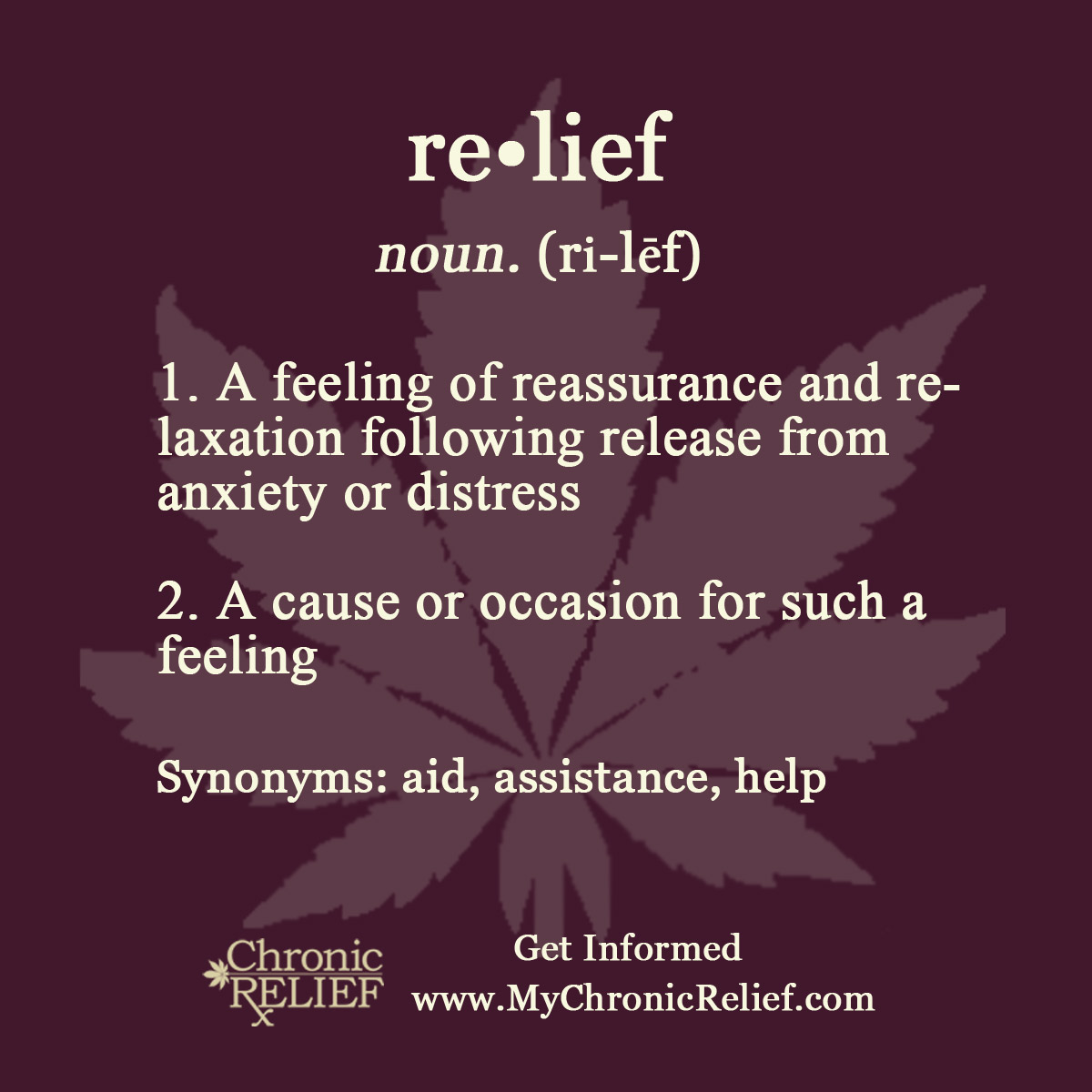
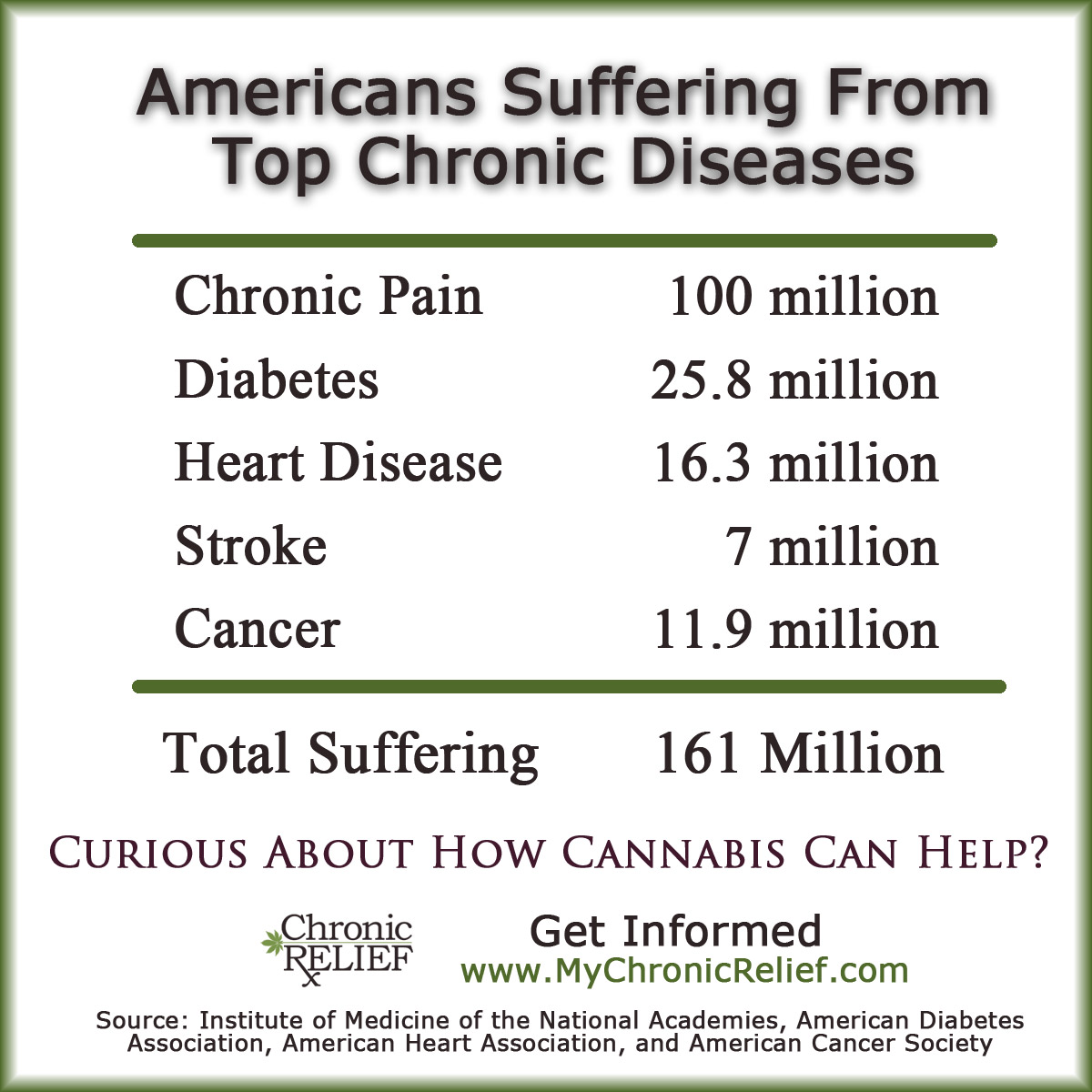
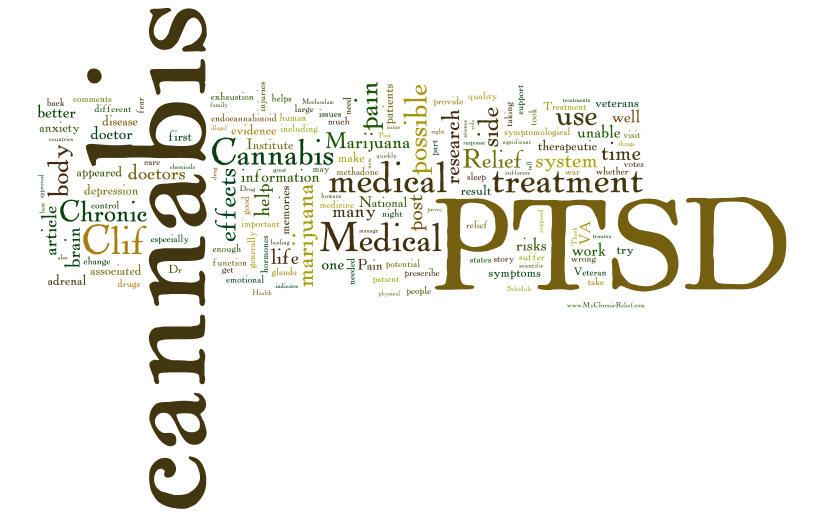
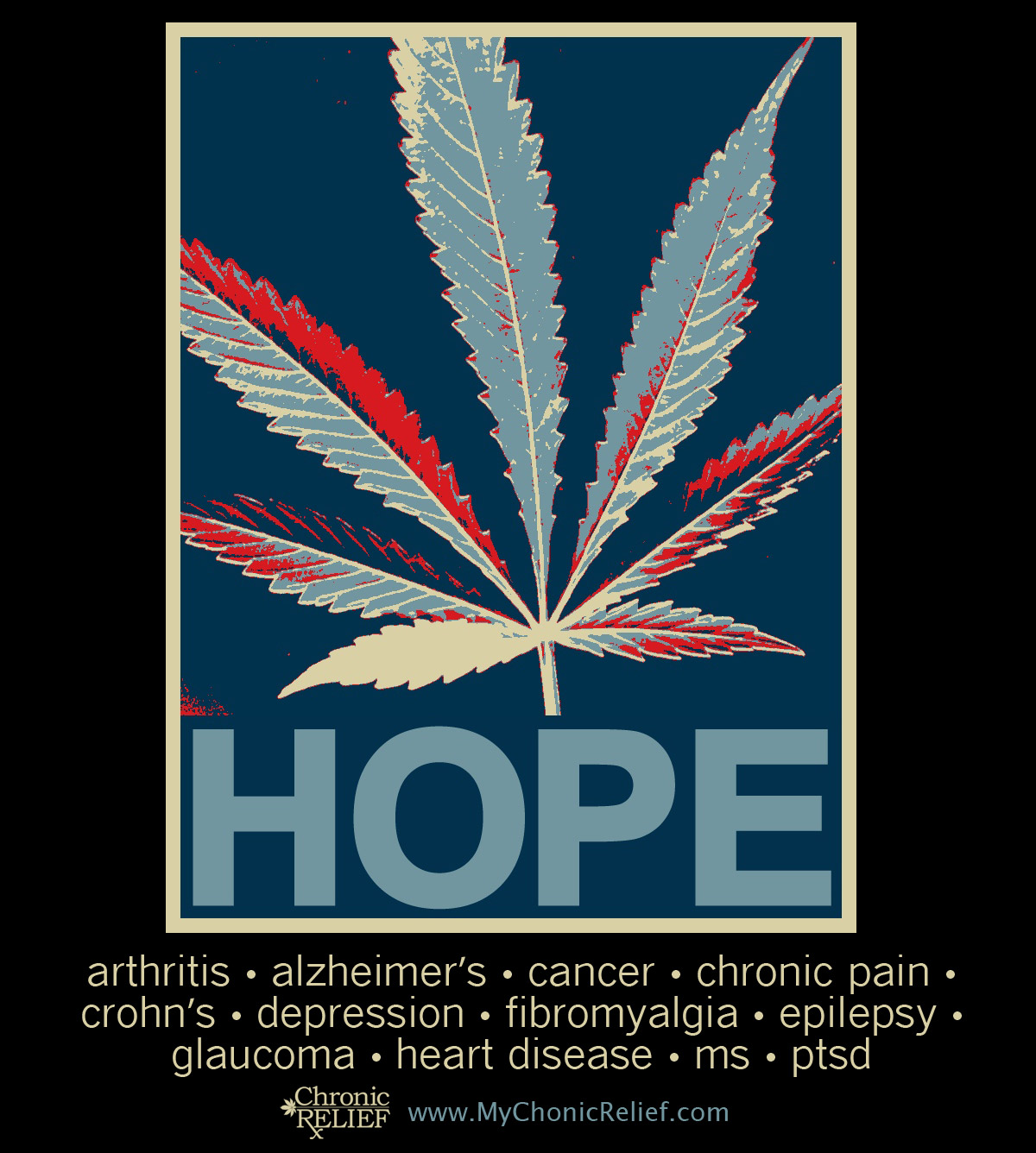
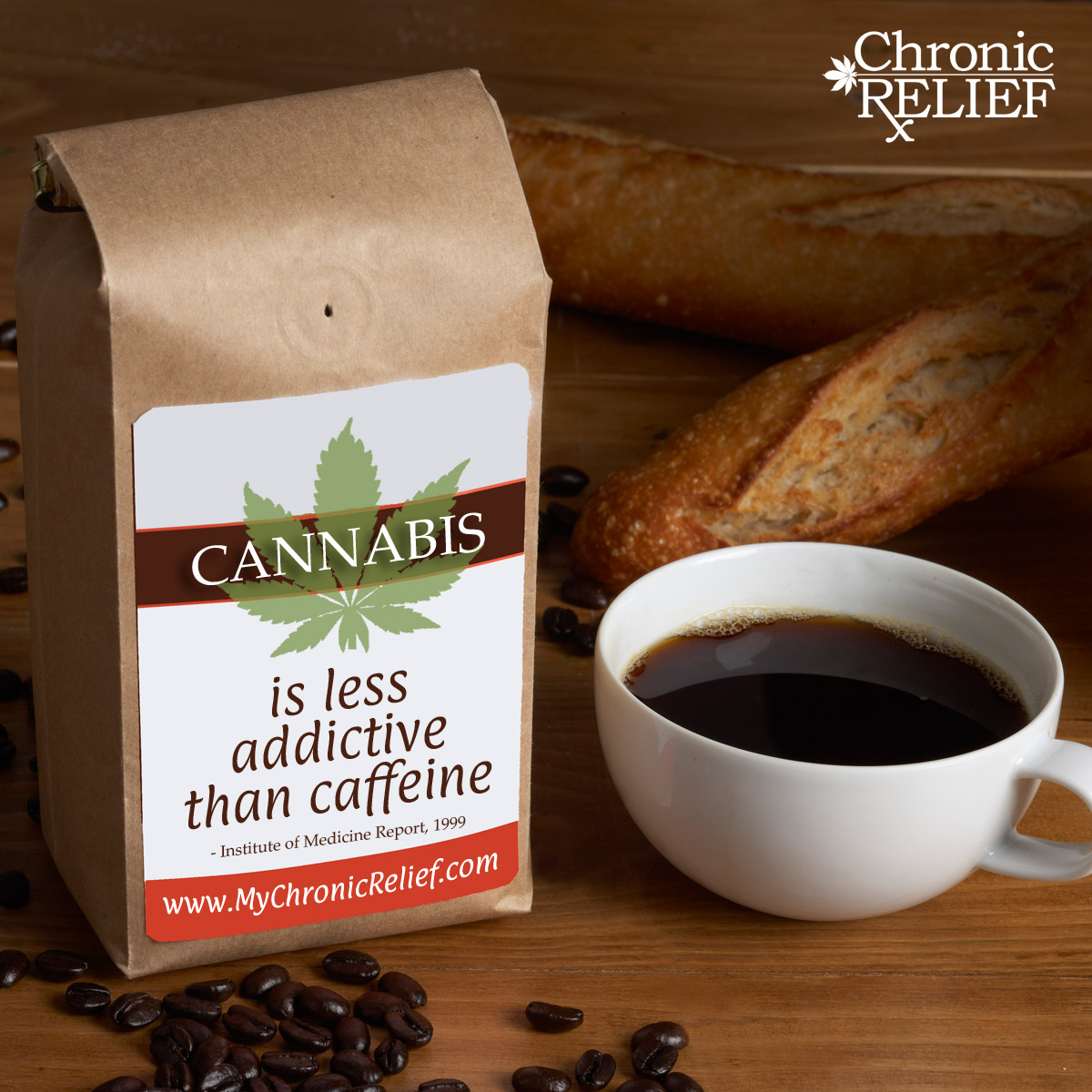
Follow Us!